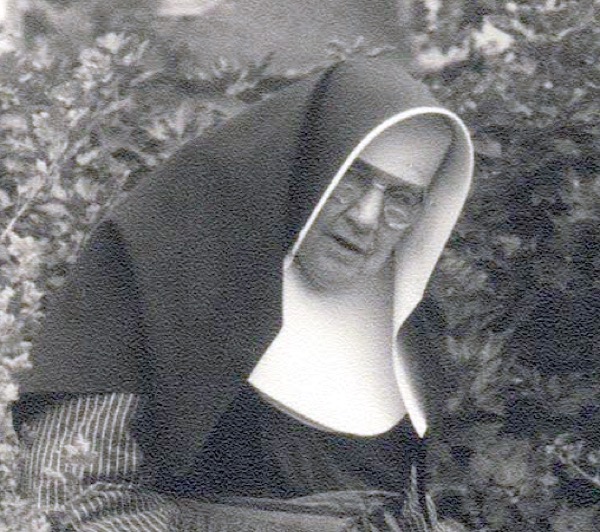Celebrating the Beginning of the German Province in Hiltrup, Germany
The German Province, the first of what are now seven provinces of the Missionary Sisters of the Most Sacred Heart of Jesus, is integral to the development of the MSC international congregation. The General Leadership, which made all the significant decisions for the MSC Sisters in Germany as well as world-wide, was in Hiltrup until 1956. New foundations in other countries were carried out from Germany even until the 1970s, and some of them were supported from here for many years.
In April 1898, Fr. Hubert Linckens, MSC began preparations to establish a branch of the Daughters of Our Lady of the Sacred Heart in Hiltrup to train German sisters; he had created the external conditions for the formation of German sisters for the Sacred Heart Mission. The inner structures still had to be established through rules and statutes. The criteria for this were set by Fr. Jules Chevalier’s spirituality and missionary orientation. The statutes received episcopal approval on February 6, 1900, on a trial basis for five years. Sr. Servatia, then a Sister of Divine Providence, became the first leader of the MSC Sisters.
The first MSC Sisters were sent to the South Seas as early as 1902, the year after their first profession. In 1904, after they had barely settled in and had just taken over their areas of responsibility, a terrible act of violence occurred at the St. Paul mission station in the Baining Mountains: a group of indigenous neighbors of the mission station resisted the foreign domination of the Europeans and the Christianization. The violence resulted in the deaths of five young MSC Sisters, four MSC priests and Brothers, and one Trappist.
In Germany these events caused consternation and sadness in political circles as well as among the MSC Sisters. At the same time, they contributed to the inner consolidation and growth of the religious community. In Hiltrup, many new members joined the congregation and six months later in the South Seas three MSC Sisters traveled to St. Paul to continue the work of their fellow sisters. They were not held back by fear, but accepted the risks involved. They were deeply convinced of the urgency of missionary work, because according to a 15th century dogma, “outside the Church there is no salvation”.

In 1906 the Missionary Sisters installed their first superior general, Sr. Franziska Fleige. Besides the joy about the growing interest of women to commit themselves to the missionary order, there were also growing concerns that not all sisters interested in missionary work abroad were fit for the tropics. For this reason, and to ensure greater stability in Germany, it was necessary to look for areas of assignment at home as well. This was the only way to ensure long-term missions abroad. There were also people in need on one’s own doorstep: nursing, child and youth care, domestic and pastoral work were the tasks of the sisters in various places. Mission does not only take place abroad, but also in the home country, “wherever there is need, preferably among the poor, however ‘poor’ is defined” (Fr. Linckens).
Signs of the external and internal growth of the congregation were further steps towards autonomy, such as the detachment of the sisters from the close ties with the German Province of the Missionaries of the Sacred Heart whose Provincial acted as Director of the sisters. The awareness of greater autonomy that had developed in this community of women was legally established in 1933 when the MSC Sisters’ statutes/constitutions were given papal approval.
The times of the world wars presented the greatest challenges for MSC Sisters’ religious congregation, as the assignments of the sisters had to be adapted to the current needs depending on the situation. Moreover, the General Chapters (meetings) could not be held on schedule. This meant that the leaders of those years, Sr. Franziska, Sr. Electa and Sr. Agnella, had long terms of office. As a German religious community, all the sisters in Germany and overseas had to come to terms with the fact that Germany had caused immense suffering and harm at home and abroad, especially during the period of National Socialism. A continued, intensive confrontation with these experiences is still of great importance today.
Great trust in God, the subordination of laws and rules to the goal of making God’s love tangible, and the acceptance of difficulties as “God’s gateways” are basic attitudes that have been lived in the MSC community since its beginnings. In order to keep them alive for our time, looking back at the beginnings is enriching and strengthening.
As the Lord God said to our first parents, so I say to you,
“Increase and multiply. In the first place you must increase.
Each member must daily grow in virtue and holiness in dedication
and love for the Sacred Heart of Jesus.”
(Fr. Linckens’ final wish and blessings, October 1922)
FOR PERSONAL REFLECTION
• When you get in touch (emotionally, spiritually) with this story, what are the essential qualities of the MSC charism/spirituality that you see incarnated in the life and mission of those sisters?
• As you are reading the story, pay attention to the historical, political, cultural, social, and ecclesial context in which the story took place. Can you identify with any of them? Do they impact your life and mission today?
